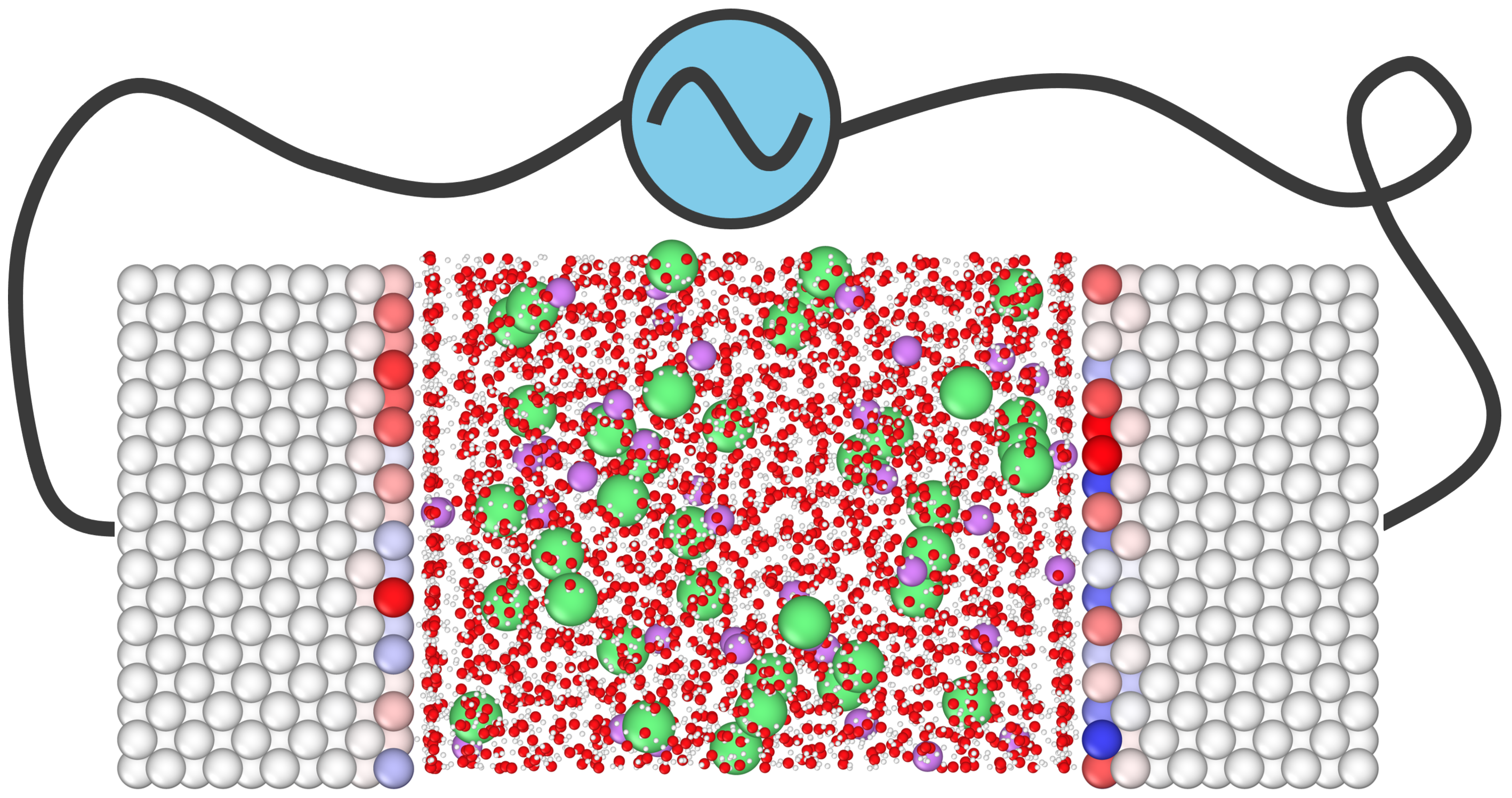As the world moves towards the decarbonisation of its electrical supply there is a significant demand for high-performance electrochemical energy storage. To maximise the storage capabilities of such devices, a thorough theoretical understanding of the static and dynamical molecular-level behaviours that govern these systems is required. Understanding the molecular origins of experimental measurables such as capacitance, charge/discharge rates, impedance, and interfacial friction, and how they are impacted by changes in electrode/electrolyte composition will facilitate a more theory-driven approach to the design of electrochemical and nanofluidic devices.
We use both classical molecular dynamics and multiscale modelling to understand energy storage systems. Current research in the group focuses on electrochemical impedance spectroscopy, a widely used experimental analysis tool. An impedance spectrum contains a wealth of important information regarding the electrochemical performance of a device, but it is often unclear how to relate it to underlying molecular behaviours. We are building theoretical models in combination with results from molecular simulations to address this issue1. We are also working to understand the molecular origins of specific ion effects in capacitance. Experimental observations show that changing the ions in an electrolyte (valency, size, etc.) leads to significant changes in the capacitance.
We also aim to understand the flow behaviour of the water and electrolytes in nanofluidic devices. We are interested in the fundamental aspect of connecting microscopic force fluctuations to macroscopic frictional response2, informing how to extract meaningful response coefficients from our simulations. In addition, we also develop models to describe non-adiabatic coupling between the solid and liquid charge densities3, advancing the field of nanofluidics by offering sustainable solutions to problems in water desalination and energy harvesting.

Relevant Publications
- Impedance of nanocapacitors from molecular simulations to understand the dynamics of confined electrolytes. G Pireddu, C Fairchild, S Niblett, S Cox, B Rotenberg, Proc. Natl. Acad. Sci. USA 121, e2318157121, 2024.
- Revisiting the Green-Kubo relation for friction. AT Bui, SJ Cox, in press, 2024.
- Classical Quantum Friction at Water–Carbon Interfaces.AT Bui, FL Thiemann, A Michaelides, SJ Cox, Nano Letters 23,580, 2023.